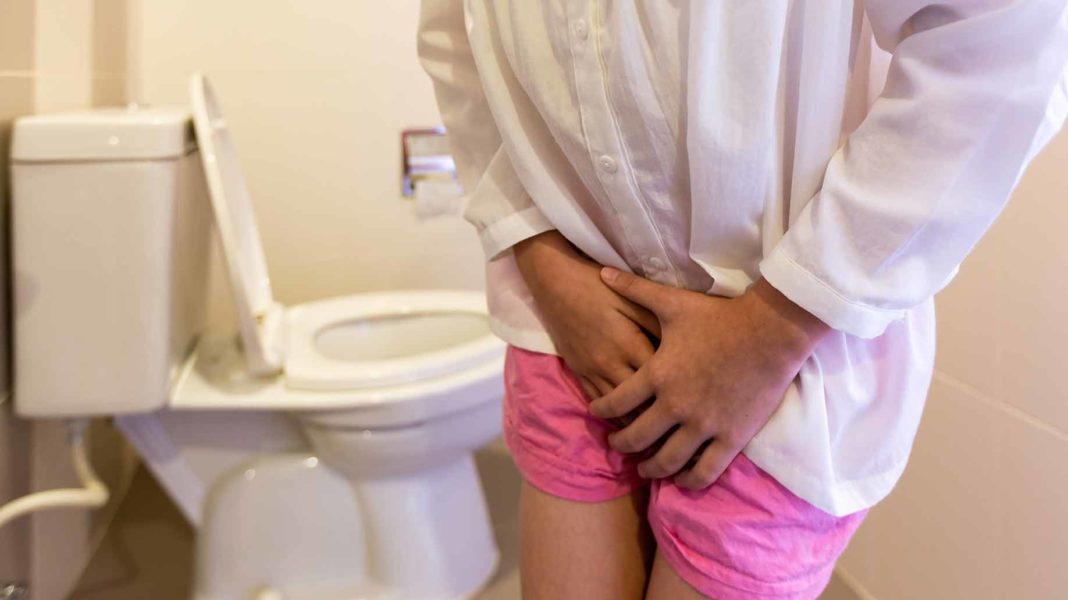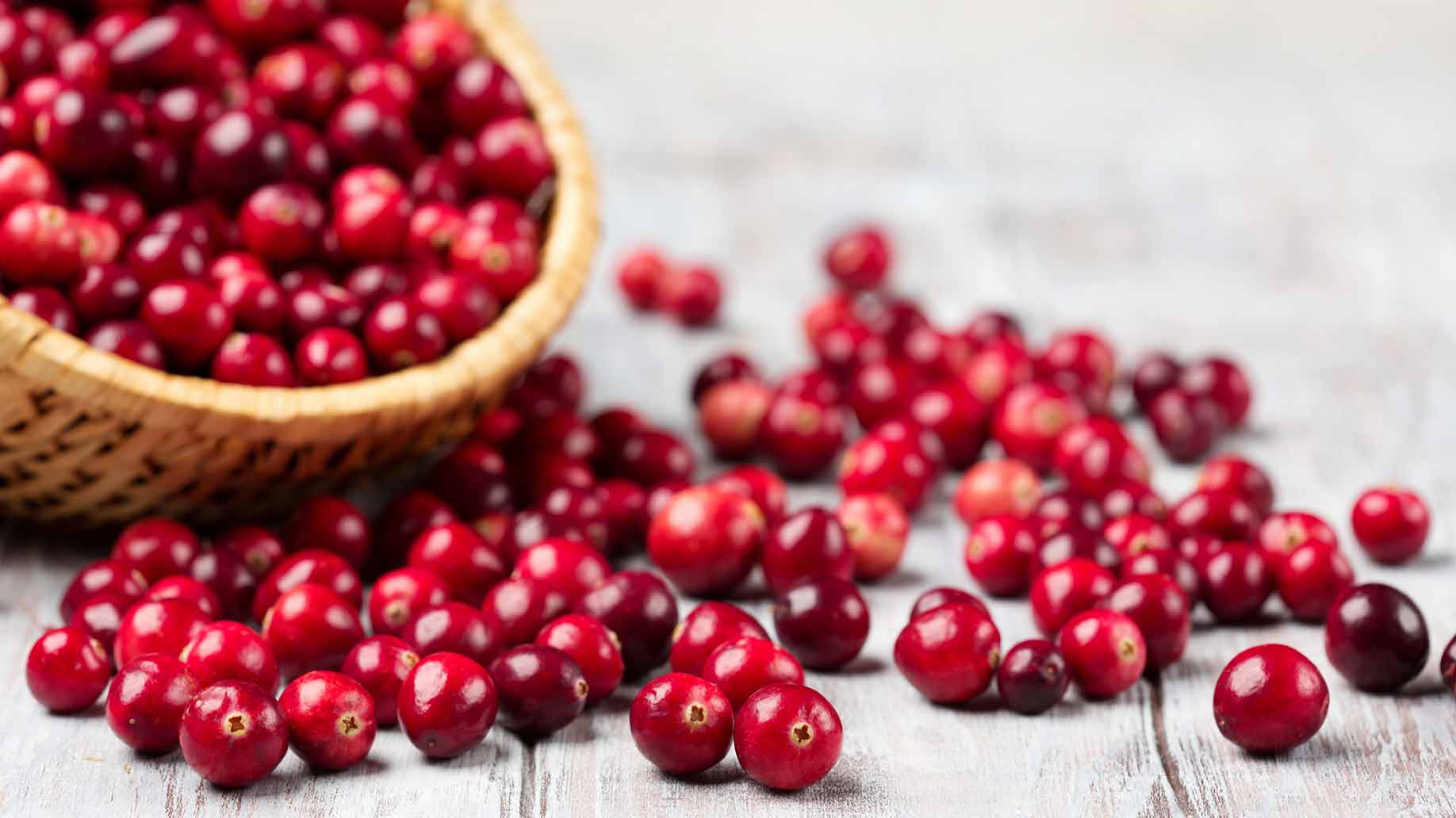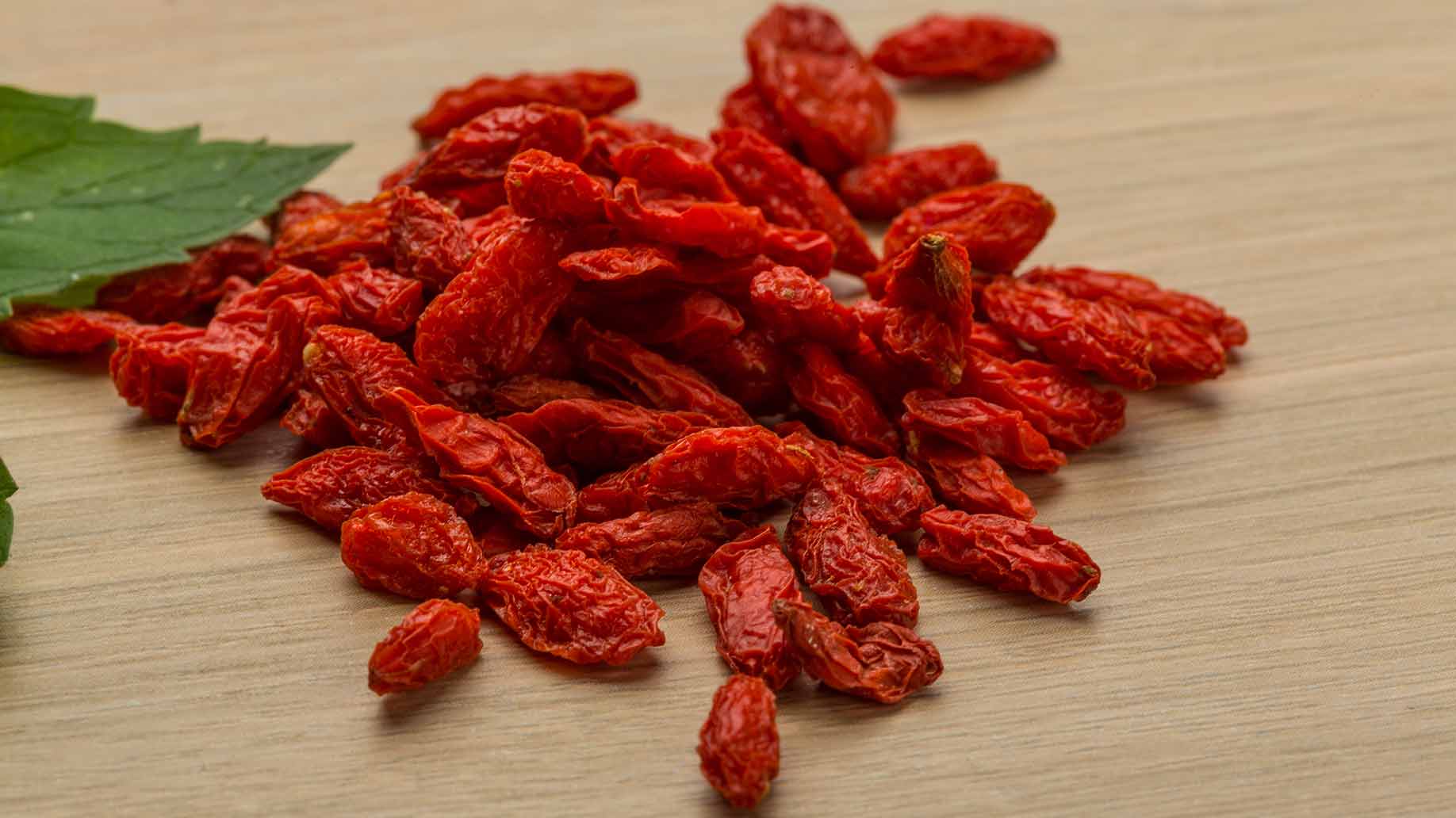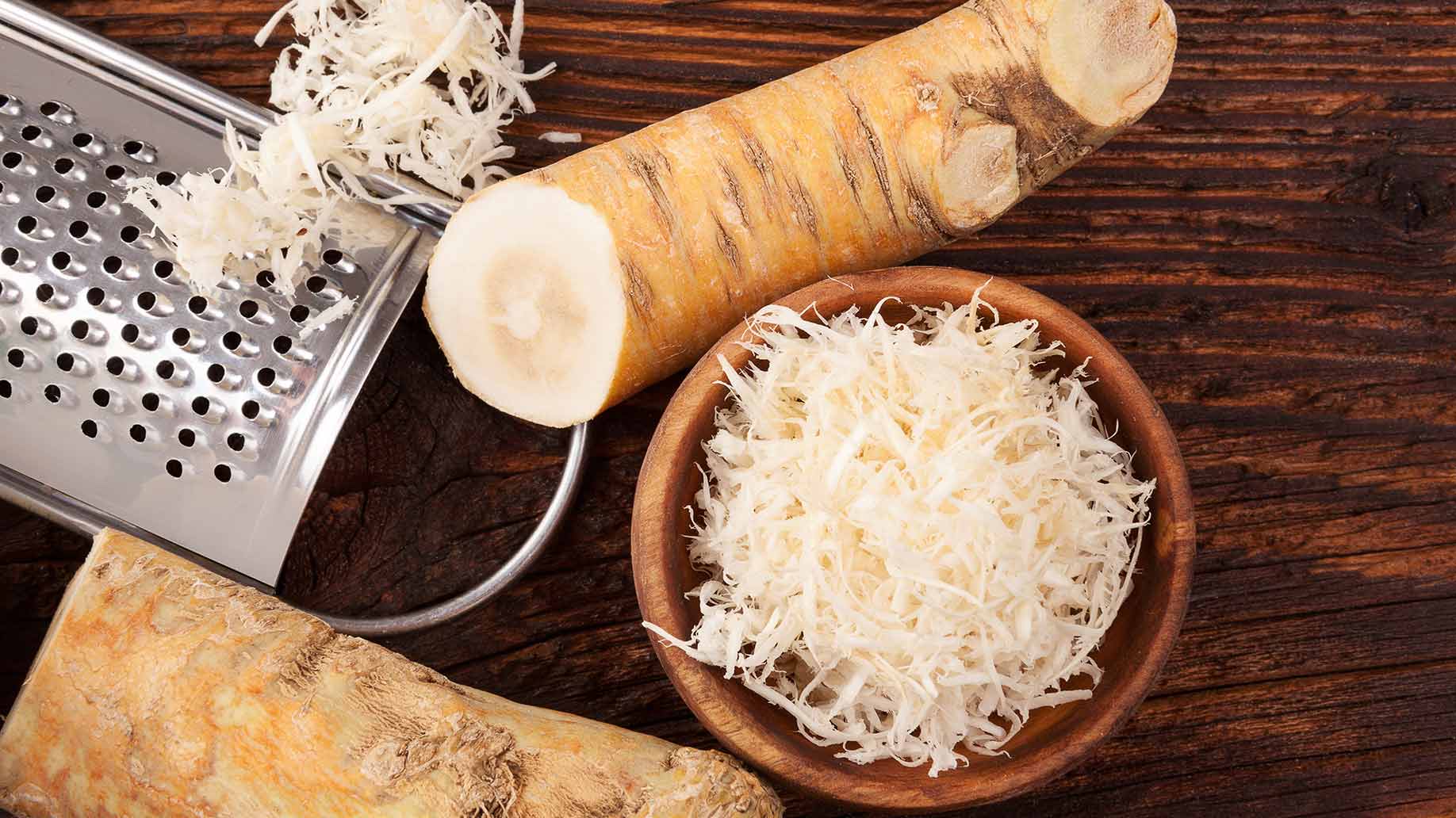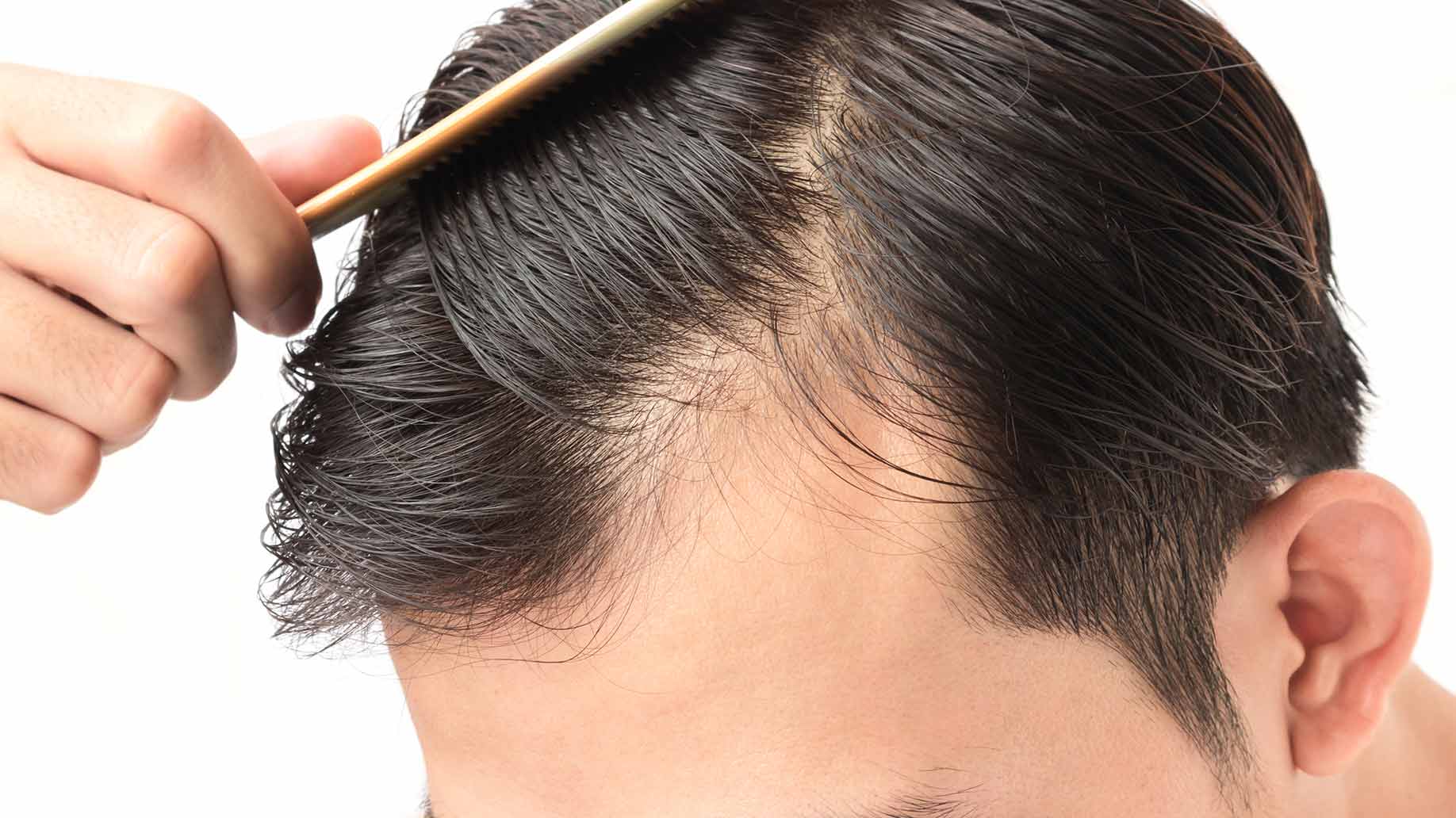According to the National Kidney Foundation, urinary tract infections (UTIs) are responsible for nearly 10 million doctor visits each year. For anatomical reasons, they are much more prevalent in women than men.
Approximately 1 in 5 women will have a UTI in her lifetime. UTIs are often recurrent and nearly 20% of women who experience a UTI will go on to have another.
Antibiotics are usually the first line pharmaceutical treatment for urinary tract infections. Lower doses may also be prescribed as a preventative measure. However, worries about antibiotic resistance cause many women with recurrent UTIs to seek alternative remedies.
What is a Urinary Tract Infection?
Urine is normally sterile and does not contain bacteria, viruses or fungi. A UTI occurs when microorganisms from the digestive tract get into the opening of the urethra and multiply in part of the urinary tract.
About 80-90% of UTIs are caused by E.coli bacteria which normally live in the colon. There are three common types of UTI:
- Urethritis – an infection of the urethra, the tube that carries urine from the bladder
- Cystitis – A bladder infection from bacteria that have travelled up the urethra
- Pyelonephritis – A kidney infection caused by bacteria that have spread up from the bladder
UTI Symptoms
People with UTIs may experience some or all of the following symptoms:
- A strong, persistent urge to urinate
- Pain or burning when passing urine
- Passing only a small amount of urine at a time
- Urine looks dark, cloudy or reddish
- Urine that smells especially bad
- Fever
- Pain or pressure above the pubic bone
Signs of a Kidney Infection (Pyelonephritis) Include:
- Pain in the back or side below the ribs
- Shaking and chills
- Nausea and vomiting
Top 5 Science-Backed Natural Remedies for a UTI
1. Cranberries
Cranberry juice and cranberry supplements are the most studied and most widely recommended natural remedy for the prevention of UTIs.
It was previously thought that cranberries worked by acidifying the urine, producing an inhospitable environment for pathogenic bacteria.
Current theories suggests that substances in cranberries called proanthocyanidins block E. coli’s adhesion molecule, preventing it from adhering to the mucosal surface of the bladder.
A double-blind trial published in JAMA examined the effect of cranberry juice on signs of infection in the urine of elderly women. A total of 153 women with an average age of 78.5 were randomly assigned to consume 300 ml per day of a commercial cranberry beverage or a placebo drink that was indistinguishable in taste and appearance.
Urine samples were collected at the start of the study and at monthly intervals for 6 months and tested for bacteria and pyuria (white blood cells indicating an immune response to infection). Women who drank the cranberry beverage were 58% less likely to have bacteria and pyuria in their urine than the control group. This improvement was not the result of decreasing urine pH, since the cranberry-juice group had an average urine pH of 6 and the placebo group had an average urine pH of 5.5.
A pilot study published in the European Review for Medical and Pharmacological Sciences evaluated the effect of a standardized cranberry extract supplement in patients with recurring UTIs. A total of 44 men and women who had 3 UTIs in the previous year were given lifestyle and hygiene advice about UTI prevention. Half of them took one cranberry extract capsule per day for 60 days.
In the cranberry group, the frequency of UTI episodes was reduced by 73% compared to only 15% in the control group. At the end of the study, urine analysis for bacterial infection was negative for 91% of the cranberry group compared to 50% of the control group.
A year-long trial published in the Canadian Journal of Urology evaluated the effectiveness and cost effectiveness of cranberry products for prevention of UTIs. A total of 150 sexually active women aged 21-72 who had at least two UTIs in the preceding year were randomly assigned to one of three groups: cranberry tablets plus placebo juice, cranberry juice plus placebo tablets or placebo tablets and placebo juice. The women drank 250 ml of juice 3 times per day and took tablets twice a day.
During the treatment year, 10 women in the juice group and 9 in the tablet group experienced at least 1 UTI, compared to 16 in the placebo group. During the year following the study, women in the juice and tablet groups experienced approximately half as many UTIs on average as women in the placebo group. Total annual antibiotic consumption was less in both treatment groups compared with the placebo group.
A randomized controlled trial published in the Journal of Antimicrobial Chemotherapy compared the effectiveness of cranberry extract with the antibiotic trimethoprim for prevention of recurrent UTIs in older women. Researchers recruited 137 women aged 45 or older who had been diagnosed and treated for two or more UTIs in the previous 12 months. The women were randomized to receive one daily capsule containing either 500 mg of cranberry extract or 100 mg of trimethoprim for 6 months.
Recurrence rates for microbiologically confirmed UTI were similar at 16% for cranberry versus 12% for trimethoprim. There was also no significant difference in the average time to recurrence of UTI. Compared with cranberry extract, treatment with trimethoprim resulted in fewer than 7 additional UTI-free days.
Researchers concluded that older women with recurrent UTIs should discuss cranberry extract with their clinicians since trimethoprim had a very limited advantage in the prevention of UTIs, produced more adverse side-effects and increased the risk of antimicrobial resistance.
A systematic review published in Molecular Nutrition and Food Research assessed the effectiveness of cranberry products in preventing UTIs. Researchers analyzed data from four good quality randomized controlled trials and concluded that cranberry products significantly reduced the incidence of symptomatic UTIs over a 12-month treatment period, particularly in women with recurrent UTIs. The combined data showed that women who used cranberry products reduced their risk of a UTI by 35%.
Method: If you like the sour taste of pure unsweetened cranberry juice, drink 10–12 ounces daily to help prevent a recurring UTI. Be aware that commercial cranberry juice often contain only 5-7% cranberry juice and tons of added sugar.
If you don’t like the taste of cranberries, take one 750 mg cranberry extract capsule or tablet daily.
Recommended:
- Organic Farms Dried Cranberries
- Organic Premium Dried Cranberries
- Cranberry Whole Fruit Concentrate – Softgels
2. Uva Ursi (Bearberry)
Uva ursi is one of the most commonly used herbs for UTIs. It has a strong antimicrobial effect against E.coli, Proteus mirabilis, Staphylococcus aureus and 70 other urinary tract bacteria.
A compound in uva ursi called arbutin is filtered by the kidneys into the urine where it acts as an antiseptic. Uva ursi also changes the characteristics of the microbial cell surface, causing more bacteria to be excreted in the urine.
In a German study, the urine of healthy volunteers given 100 mg to 1 gram of arbutin showed similar antimicrobial activity as the prescription antibiotics gentamicin and nalidixic acid against the uropathogens E. coli, Proteus mirabilis and Pseudomonas aeruginosa.
A laboratory study examined the effects of 4 herbal extracts on strains of E.coli extracted from the urine of patients with kidney infections. The leaves of uva ursi had the highest antimicrobial activity. After exposure to undiluted uva ursi extract, 20 strains of E.coli showed no growth. Researchers also found that aqueous extract of uva ursi made the microbial cell surface more water repellent, decreasing the ability of bacteria to adhere to the urinary tract.
A study published in Current Therapeutic Research investigated the effectiveness of an uva ursi supplement for preventing UTIs. A total of 57 women aged 32-63 who had suffered at least three episodes of cystitis during the preceding year were randomized to a treatment group or a control group. The treatment group received supplements containing extracts of uva ursi leaf and dandelion root and leaf. (Dandelion was included for its diuretic effects.) The control group received placebo supplements.
The participants took the supplements for one month. Over the course of the following year, none of the women in the uva ursi group had a UTI, whereas 5 of the women in the placebo group did. This difference was statistically significant.
Method: At the first sign of a UTI, take a 500mg of uva ursi leaf extract capsule 6 times daily, preferably with food. If you have recurring UTIs, take 3 capsules daily as a preventative measure.
Uva ursi appears to be most effective for UTI suffers with alkaline urine (pH should be at least 8). You can increase urine alkalinity by drinking a daily mixture of 2 teaspoons of baking soda dissolved in a glass of water.
Recommended:
- Bearberry Pure Leaf Extract (Uva Ursi) – Powder
- Organic Uva Ursi Tea – Caffeine-Free
- Uva ursi with D-Mannose and Cranberry – Capsules
- Uva Ursi – Capsule
3. D‐mannose
D-mannose (aka mannose) is a natural sugar found a variety of fruits and vegetables. It differs from most sugars in that it is not metabolized by the body and is excreted in the urine.
D-mannose attracts pathogenic bacteria like a magnet. The bacteria binds to the sugar particles and are flushed out of the body along with the mannose.
Laboratory and animal studies have found that E. coli have proteins that specifically bind to receptors on mannose particles. When mannose is present, the E.coli bacteria will adhere to it, rather than to the bladder wall.
A pilot study published in the Journal of Clinical Urology evaluated the efficacy of D-mannose in the treatment and prevention of recurrent UTIs. Researchers recruited 60 women aged 22-54 who had a current UTI and had had 3 or more UTIs in the preceding 12 months. The patients were randomly assigned to treatment with antibiotics or to treatment with 1 gram of D-mannose 3 times a day for 2 weeks, then 1 gram twice a day for 22 weeks.
Significantly more women remained infection-free in the D-mannose group. The average time between initial treatment and a recurrent UTI was 53 days in the antibiotic group and 200 days in the D-mannose group.
A clinical trial published in the World Journal of Urology tested whether D-mannose powder is effective for preventing recurrent urinary tract infections. A total of 308 women with a history of recurrent UTI were randomly allocated to 3 groups after initial antibiotic treatment for cystitis. One group received 2 grams of D-mannose powder daily for 6 months, another group received 50 mg of the antibiotic nitrofurantoin, and a control group had no preventative treatment.
Over the course of the study, 15 patients in the D-mannose group had a recurrent UTI compared to 21 in the nitrofurantoin group and 62 in the control group. Patients in both treatment groups had a significantly lower risk of developing UTIs than those in the no-treatment group. However, patients in the D-mannose group had a significantly lower risk of side effects compared to patients in nitrofurantoin group.
Method: For an active UTI, mix 1 heaped teaspoon of D-Mannose powder into a glass of water and drink every 3 hours. To prevent recurrent UTIs, drink 1 heaped teaspoon dissolved in water once a day.
After taking a dose of D-Mannose, drink another 12-ounces of water to help flush the mannose-bound E-coli out of your system.
Recommended:
4. Probiotics
Bacteria which cause a UTI usually spreads from the digestive tract to the urogenital tract. Certain species and strains of friendly bacteria such as lactobacillus colonize in the large intestine and crowd out undesirable bacteria such as E. coli.
Probiotics can favorably alter the microflora of the bowel, increasing the good bacteria and reducing the concentration of pathogenic bacteria which can lead to a UTI. They can also help to restore a healthy microbiome after treating a UTI with a course of antibiotics.
A study published in the American Journal of Clinical Nutrition investigated whether dietary factors could protect women from urinary tract infection. Researchers recruited 139 women with a diagnosis of an acute UTI and compared them with 185 age-matched controls with no episodes of UTIs over the past 5 years. The participants completed questionnaires regarding their dietary habits and daily fluid intake during the past month.
Frequent consumption of fermented milk products containing probiotic bacteria such as Lactobacillus acidophilus or Lactobacillus GG protected against UTIs. Women who consumed yogurt or cheese with active cultures more than 3 times a week had a significantly lower risk of UTI compared to women who consumed them less than once a week. Non-fermented milk products had no effect on the risk of UTI.
A double-blind trial published in JAMA compared the effectiveness of probiotics to antibiotics for the prevention of recurrent UTIs. A total of 252 postmenopausal women with at least 3 UTIs in the preceding year were randomized to receive the antibiotic trimethoprim-sulfamethoxazole or probiotic capsules containing Lactobacillus rhamnosus and Lactobacillus reuteri.
After 12 months of treatment, the average number of symptomatic UTIs in the probiotic group was 3.3, nearly equivalent to those in the 2.9 in the antibiotic group. The percentage of patients with at least 1 microbiologically confirmed UTI during the 12-month study was 49.4 in the antibiotic group and 63.9 in the probiotic group. Although the occurrence of UTIs was reduced by 50% in the probiotic group, researchers concluded that probiotics not meet their noninferiority criteria in the prevention of UTIs when compared with antibiotics.
However, treatment with antibiotics resulted in a considerable increase in antibiotic resistance among E coli isolated from patients’ urine and feces. After just 1 month of treatment, resistance to 3 different antibiotics increased to approximately 80-95%. Resistance did not increase during probiotic treatment. Therefore, the researchers concluded that lactobacilli probiotics may be an acceptable alternative for prevention of UTIs, especially in women who dislike taking antibiotics.
A study published in Clinical Therapeutics examined the efficacy of probiotic vaginal suppositories for the prevention of recurring UTIs. Researchers treated 41 women with UTIs with a 3-day course of antibiotics to eradicate their infections. The women were then randomized to receive vaginal suppositories containing either a lactobacillus probiotic or a sterilized skim-milk placebo. Women in the lactobacillus group had a UTI recurrence rate of 21% compared to a recurrence rate of 47% in the placebo group.
Method: Choose probiotic capsules formulated for women which contain Lactobacillus rhamnosus and Lactobacillus reuteri. Take 2 capsules per day for a current UTI or 1 capsule a day to prevent future UTIs.
Probiotic vaginal suppositories containing a variety of lactobacillus strains are available to purchase online. Use according to directions.
Recommended:
5. Vitamin C
Vitamin C (ascorbic acid) helps to treat a UTI by acidifying the urine. E. coli and certain other types of bacteria convert nitrates in the urine to nitrites.
When the urine has an acidic pH, the nitrites form nitrogen oxides which are toxic to bacteria, colonizing the bladder. Decreasing the pH of urine to a level below 5.5 effectively kills E. coli bacteria.
A laboratory study published in Nitric Oxide examined the effect of vitamin C on bacteria in human urine. Nitrite-containing human urine which was mildly acidic generated large amounts of nitric oxide which markedly reduced the growth of three common urinary pathogens: E. Coli, Staphylococcus saprophyticus and Pseudomonas aeruginosa. The addition of ascorbic acid to the urine enhanced the effect and further inhibited bacterial growth.
A case-control study published in the Journal of Clinical Epidemiology examined the associations between various lifestyle factors and urinary tract infection among college-aged women. Researchers collected data from 237 female patients attending a university health service with UTI symptoms and a control group with no urinary symptoms. All of the study participants filled in questionnaires which included items on diet.
Examination of the associations between UTI and diet during the previous 4 weeks showed most foods and drinks had no effect on UTI risk. The only dietary factor that showed a protective effect against UTIs was taking vitamin C. After controlling for confounding variables, researchers found that, for women with no prior UTI, vitamin C reduced the UTI risk by 41%. For women with one or more prior UTIs, vitamin C reduced the UTI risk by 15%.
A Mexican study evaluated the role of vitamin C in preventing UTIs during pregnancy. A total of 110 pregnant women were randomized into 2 groups. One group received 200 mg iron, 5 mg folic acid and 100 mg vitamin C daily. The other group received 200 mg iron and 5 mg folic acid daily.
Urine cultures were carried out each month for a period of 3 months. In the vitamin C group 13% of women developed UTIs, compared to 29% of women in the non-vitamin C group. This difference was statistically significant.
Method: For a current UTI, take 500 mg of vitamin C, 3-4 times daily. To help prevent future UTIs, take one 500 mg of vitamin C supplement per day.
Note that the NIH sets the upper tolerable daily intake limit of vitamin C at 2,000 mg for adults. Higher doses may cause gastrointestinal disturbances such as diarrhea, nausea and abdominal cramps.
Recommended:
- Vitamin C Dietary Supplement Fizzy Drink Mix Packets
- Vitamin C – Raw Whole Food Supplement
- Vitamin C – Caps with Bioflavonoids and Rose Hips
- Vitamin C – Activated C Food Complex for Immune Support
- Vitamin C 1000 with Bioflavonoids
- Vitamin C – Packets
Other Natural Remedies That May Help a UTI
The following natural remedies have not been as widely studied as the ones listed above, however there is some evidence that they may be of help to UTI sufferers.
Bromelain, berberine and horseradish are all available in supplement capsules. Couch grass is most widely available as a tea or tincture.
6. Bromelain
Bromelain is an enzyme derived from pineapple with anti-inflammatory properties. It may enhance the effectiveness of antibiotics used to treat UTIs.
One clinical study from 1972 tested the effect of supplement tablets containing bromelain and trypsin (a digestive enzyme) for UTIs.
Patients with UTIs were treated with antibiotics plus either a 400 mg bromelain/trypsin supplement or placebo tablet for 2 days. All of the patients in the enzyme supplement group had a resolution of their infection compared with only 46% of those in the placebo group.
Recommended:
7. Berberine
Berberine is a a plant alkaloid with antimicrobial properties found in a variety of medicinal herbs including barberry, Oregon-grape and goldenseal. Laboratory research has shown that berberine inhibits the growth of E. coli fimbriae, appendages the bacteria use to adhere to cells.
In theory, berberine would prevent E. coli from attaching to the lining of the bladder. One study found that pre-treatment of rats with berberine could reduce chemically-induced cystitis in a dose‐dependent manner.
Recommended:
8. Horseradish
Horseradish contains mustard oils that have antibacterial properties. Once ingested these oils are processed by the kidneys and excreted in the urine. Therefore, they can help to fight infection as they pass through the urinary tract.
A German study tested the effect of a supplement containing horseradish root and nasturtium (another source of mustard oils) for treatment of recurrent UTIs. A total of 131 patients who had experienced 2 UTIs in the past 6 months were randomized to receive either the supplement or a placebo twice daily for 90 days. Over the study period, the average number of recurrent UTIs in the supplement group was significantly lower than that in the placebo group.
Recommended:
9. Couch Grass
Couch grass (Agropyron repens) is a traditional herbal remedy for UTIs. It was thought to work by simply increasing the volume of urine excreted, helping to flush out bacteria.
However, recent laboratory research has shown that a hexadecyl-coumaric acid ester in couch grass reducees E. coli’s ability to adhere to the lining of the bladder.
Recommended:
Final Word
There are a few simple hygiene steps you can take to prevent the spread of bacteria that can cause a UTI:
- Drink plenty of water to ensure more frequent urination and use the toilet whenever you feel the urge. This will help flush any bacteria out of your urinary tract before it has a chance to multiply.
- Urinate after sex to flush out any bacteria that may have been transferred.
- Wear cotton underpants and choose pantyhose or tights with a cotton gusset. Artificial fabrics like nylon trap moisture and promote bacterial growth.
- When using toilet paper, wipe from front to back.
- If you have recurrent UTIs, take showers instead of baths.
- Avoid using feminine deodorants or douches which could alter the pH of the urinary tract, encouraging bacterial growth.

